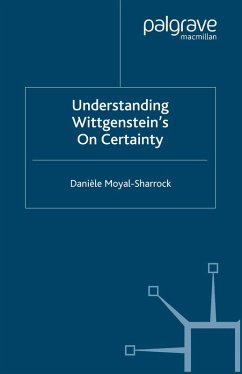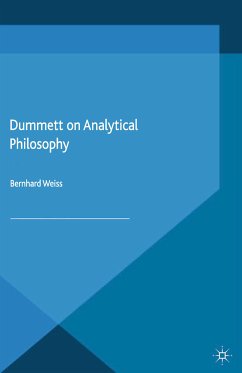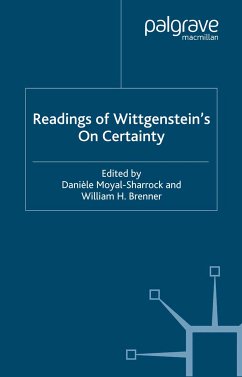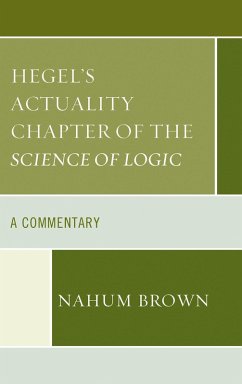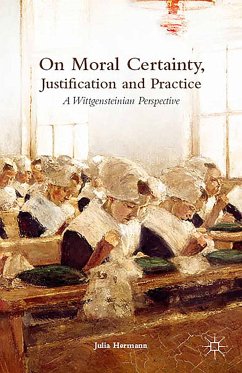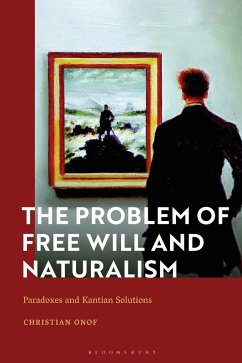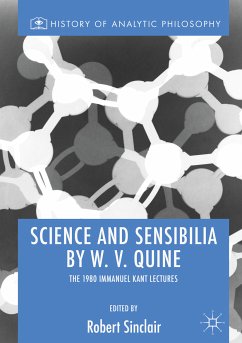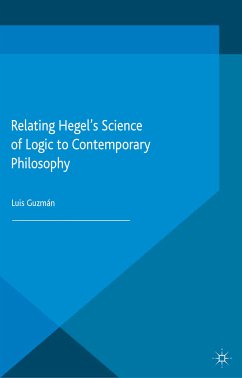
Relating Hegel's Science of Logic to Contemporary Philosophy (eBook, PDF)
Themes and Resonances
Versandkostenfrei!
Sofort per Download lieferbar
40,95 €
inkl. MwSt.
Weitere Ausgaben:

PAYBACK Punkte
20 °P sammeln!
This book offers an interpretation of certain Hegelian concepts, and their relevance to various themes in contemporary philosophy, which will allow for a non-metaphysical understanding of his thought, further strengthening his relevance to philosophy today by placing him in the midst of current debates.
Dieser Download kann aus rechtlichen Gründen nur mit Rechnungsadresse in A, B, BG, CY, CZ, D, DK, EW, E, FIN, F, GR, HR, H, IRL, I, LT, L, LR, M, NL, PL, P, R, S, SLO, SK ausgeliefert werden.




